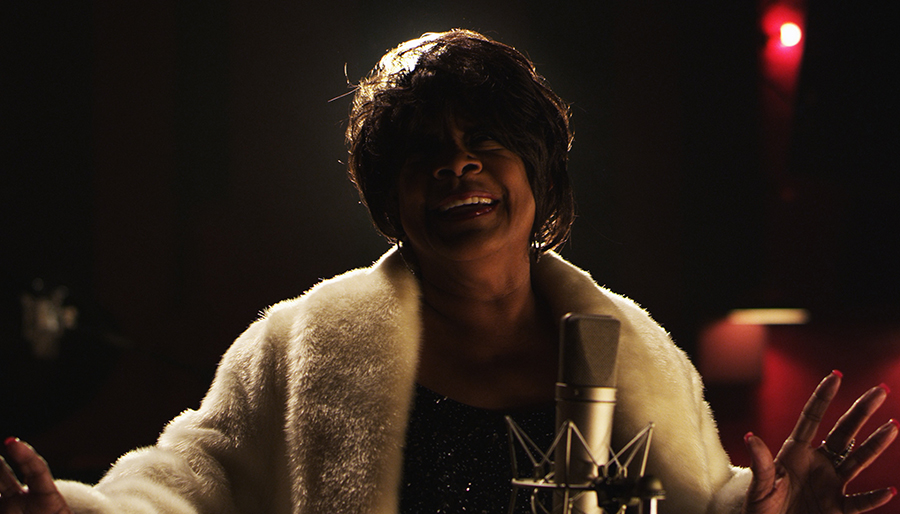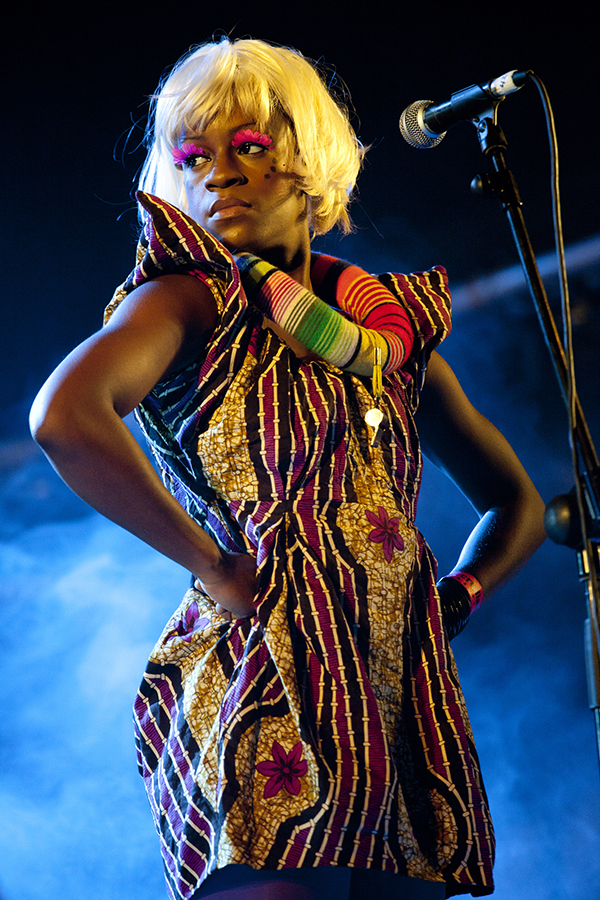
The film is about neglected but talented backup singers in the world of pop music. I’ve never been into backup singers, and barely into pop music at all. My flirtation with pop singers pretty much ceased to exist with Sgt. Pepper and “You Can’t Always Get What You Want.”
Somehow, for reasons unclear to me, I moved toward Beethoven (especially the late works) and dissonant contemporary chamber music by the likes of The Kronos Quartet. I’d toss in some Yo-Yo Ma to massage my weary ears. But despite the leap to highbrow sounds, I still loved Ray Charles, whom I first heard in the Army dayroom in Fort Myer, Virginia, when I was 24 years old and doing draft time. Even now, as an old fart, I try to catch Tom Mazzolini’s “Blues by the Bay” program every Saturday at noon on KPFA out of Berkeley.
So, backup singers? Not on my radar. That is, until I learned about 20 Feet from Stardom.
All the reviews I’ve read of this film are not only laudatory, but positively dripping with ecstasy. The film’s appeal seems elemental.
Here is critic Kimberley Jones of The Austin Chronicle about the film: “20 Feet From Stardom is an extended hosanna to an undersung artist — the backup singer — and what a joyful noise it makes.”
And from critic Sheila Weller of The Washington Post: “I walked out of Morgan Neville’s documentary 20 Feet from Stardom on air, wanting to tell everyone I knew that they had to see that movie. Which I did.”
Weller continues: “I was hardly alone. Facebook posts and entertainment websites have been erupting with that heard-too-little-these-days sound of the real thing: self-surprised, word-of-mouth acclaim for this story of a half-dozen backup singers, most of them African-American women, whose subtle, masterful, flexible and (this is important) utterly professional artistry ‘made’ the songs and the concerts we’ve loved for decades, from Phil Spector’s Wall of Sound gems (that would be Darlene Love) to The Rolling Stones’ ‘Gimme Shelter’ [with backup Merry Clayton].”
This vocal sung by Clayton, backing up The Rolling Stones, defines power. Her singing is brief and a cappella, but it is transcendentally potent.
“Rape, murder – it’s just a shot away, it’s just a shot away.” That brief lyric deserves some interpreting. It’s part of The Stones’ song “Gimme Shelter,” which hit the charts in 1969. Consider what was going on that year: not too far removed from assassinations of three national leaders, Vietnam, youth culture in full swing, awareness of the plight of women — truly a new area. “A shot away” stood for all of this. It resounded as only poetry can.
Mick Jagger did an interview with NPR’s “All Things Considered” program just this year about these troubled times and Clayton’s “apocalyptic” contribution.
One of the most striking moments in the interview, according to Open Culture critic Mike Springer, is when Jagger describes the circumstances surrounding Clayton’s vocals.

Later, while surfing the Wikipedia entry on backup singers, I found a saucy photograph of a British backup singer who calls herself “One of the Wives.” She apparently sings behind a R&B songwriter named Ebony Bones. Her self-effacing stage moniker sums up what 20 Feet from Stardom is all about: talented women toiling in obscurity, but playing an indispensible role.
Now, I understand. Where would pop music be without them?
Jim Piper is a Filmworks board member, a filmmaker, and a retired film studies instructor.
